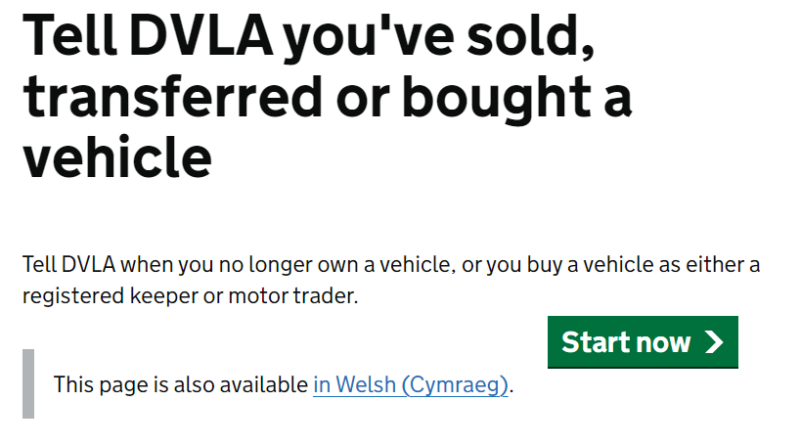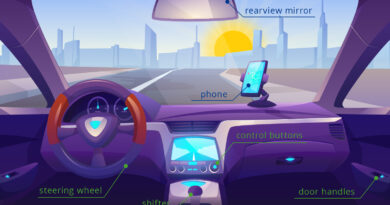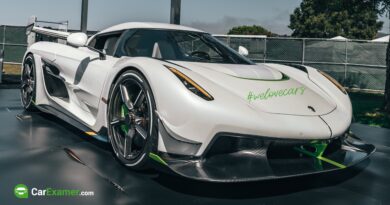A Guide How to Tell the DVLA You’ve Sold Your Car
This guide outlines the necessary steps and information to ensure a smooth and compliant process when informing the DVLA that you’ve sold your car. Selling a car marks the end of an era and the beginning of a new chapter, but it also involves a crucial administrative step – informing the Driver and Vehicle Licensing Agency (DVLA) about the change in ownership. In the United Kingdom, notifying the DVLA of the sale is a legal requirement to avoid any potential issues.
You cannot use this service if you’ve already sent your log book (V5C) by post.
This service is available from 7am to 7pm.
1. Gather Essential Information:
Before initiating the notification process, gather the essential information about the vehicle sale. This includes the buyer’s details, such as their name and address, as well as information from the vehicle’s logbook (V5C) and the car’s registration number (number plate).
2. Complete the V5C Logbook:
The V5C logbook is a crucial document that needs to be filled out correctly to inform the DVLA of the change in ownership. On the V5C, complete section 6, which is dedicated to notifying the DVLA about the sale. Include the buyer’s details, the date of sale, and the current mileage of the vehicle.
3. Tear Off and Send the Appropriate Section:
After completing section 6 of the V5C logbook, tear it off along the perforated line. This section is for the seller to keep as a proof of notification. The remaining part of the logbook (V5C/2) is for the buyer. Hand this over to the new owner, as they will need it for their own registration purposes.
4. Notify the DVLA Online:
In addition to completing the V5C logbook, it’s advisable to notify the DVLA online. Visit the official DVLA website and navigate to the ‘Tell DVLA you’ve sold, transferred or bought a vehicle’ section. Enter the required details, including the vehicle’s registration number, make, model, and the 11-digit reference number from the V5C.
5. Retain Proof of Notification:
After completing the online notification, print or save the confirmation as proof that you’ve informed the DVLA about the vehicle sale. This documentation can be crucial in case of any discrepancies or issues in the future.
6. Return the Vehicle License Plates:
If you’re retaining your personalized number plates, remember to remove them from the vehicle before handing it over to the new owner. You can then either transfer the plates to another vehicle or keep them in your possession.
7. Notify the DVLA by Post:
If you prefer a postal option, you can send a letter to the DVLA notifying them of the sale. Include the vehicle registration number, make, model, color, and the buyer’s details. However, online notification is generally faster and more efficient.
8. Tax Refund:
If there are full months of road tax remaining on the vehicle after the sale, you may be eligible for a tax refund. Notify the DVLA about the sale promptly to ensure you receive the appropriate refund for the unused tax period.
9. Keep Records for Your Records:
As a final step, keep a copy of all documentation related to the vehicle sale, including the completed V5C logbook section, the online confirmation, and any postal communication with the DVLA. These records can serve as crucial evidence in case of disputes or inquiries.
Conclusion:
Notifying the DVLA when you’ve sold your car is a straightforward yet essential process to ensure compliance with legal requirements and to prevent any potential issues down the road. By completing the necessary paperwork, notifying the DVLA online, and keeping accurate records, you contribute to a smooth transition of ownership and ensure that the relevant authorities are informed of the change. Taking these steps promptly allows you to focus on the excitement of selling your car and paves the way for a hassle-free experience for both you and the new owner. Understanding PCP contract.
Buying a used VW. Buying used vauxhall, BMW, Jaguar, Ford, Volvo, Range rover, Bentley, Aston Martin, Porsche, Ferrari, Lamborghini, Maserati, Hyundai, Tesla, Honda, Pagani.




